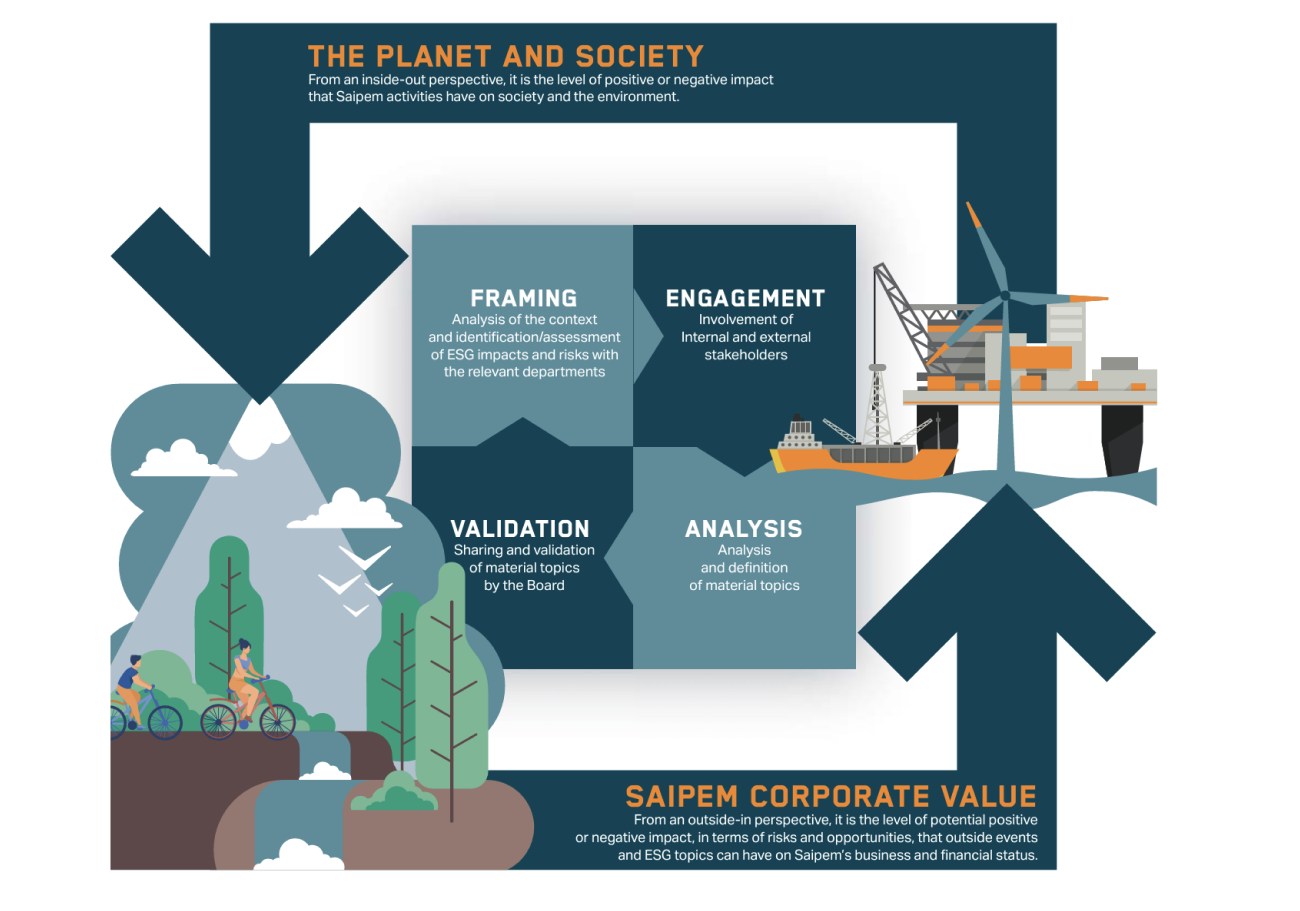Stakeholders have different needs, resources, interests and ways of operating with regards to sustainability. Each one requires a distinctive approach. Saipem constantly invests in the stakeholder engagement process, to build successful relationships based on mutual dialogue, which is a key part of our sustainability strategy.
Saipem maintains open communications with the financial community, in compliance with applicable rules and regulation ensuring full transparency and equal access during the disclosure of confidential information. Press releases, periodic presentations to the market and documentation on the Company’s website are the tools that guarantee this constant flow of information, as well as periodic meetings with institutional investors and analysts, banks, and insurances.
Continuous dialogue and collaboration with clients are essential to ensure that their needs are understood and met, right from the early stages of the project’s life in the commercial and feasibility phases, in order to transform our client’s strategies into safe and sustainable infrastructures and plants. Saipem aims to support its clients in their decarbonisation path and to be a partner of excellence.
People are the Company’s fundamental asset for long-term success. Saipem is particularly committed to recruiting talented personnel and promoting their development, motivation, and skills. Saipem works to guarantee a safe and healthy working environment, promote an inclusive workplace and maintain stable relations with trade unions to ensure an open dialogue based on cooperation.
Saipem considers the needs of the local communities in its areas of operation and cultivates an active dialogue with them, defining specific engagement and intervention plans, which include periodic meetings, communication events, responses to requests, and collaboration in local initiatives, that contribute to the local social and economic development.
Saipem is committed to educating and training new generations and to raising awareness on sustainability topics. It offers job opportunities and personal and professional growth through empowerment and tutoring initiatives. It collaborates with schools and universities to promote integration between theoretical knowledge and practical experience.
Engagement with governments and local authorities is based on circumstances in which Saipem operates, taking into consideration the specificities of the country and the social context. Saipem cooperates with public bodies to launch initiatives for local communities, engaging in constructive and transparent dialogue with institutions and trade associations.
Saipem is committed to providing information to local and non-governmental organisations interested in its operations, mainly through its institutional channels. At local level, Saipem identifies organisations of proven experience with which to establish short or medium-term relations and collaborations mainly in the design and execution of initiatives for local communities.
Saipem develops and maintains long-term relationships with suppliers based on mutual trust and ethical behaviour. Vendor reliability is assessed in terms of technical and financial capabilities and sustainability standards. Suppliers are engaged in several initiatives to strengthen their knowledge and improve their performance, especially on HSE and human and labour rights.
Materiality Assessment
The materiality includes the most significant reflections that a company's activity can determine from a financial, economic, reputational, environmental, climatic, social and legal perspective, in respect of its employees, partners, investors, customers, suppliers, markets, territories, institutions, governments and communities, both local and global – in short, everything that is reflected with a significant impact on all stakeholders and on company itself.
Materiality analysis is a vital strategic management tool, helping the company identify key ESG topics relevant to stakeholders and assess their impact along the value chain. This analysis guides the development of the Sustainability Plan and Strategic Plan, fostering stronger relationships and trust with stakeholders by incorporating their views and priorities into Saipem's strategy.
Double Materiality
This comprehensive approach considers, on the one hand, the impacts that Saipem and its value chain generate or potentially generate on the environment and people through the company’s operations (Impact Materiality, inside-out perspective), and on the other, the financial aspects impacting or potentially impacting the company’s value due to external conditions (Financial Materiality, outside-in perspective) – as well as their reciprocal interactions and reflections.
